“Like pretty much every woman I know, juggling tasks is kind of my thing,” writes Sarah Tarca, above, co-founder of The Wayward.
“In my very first “professional” job at Cosmopolitan, I had not one, but three job titles. So, when I had my first baby, naturally I expected to be able to incorporate him into my life perfectly.
And for a little while, I could. I started writing again two weeks after he was born, using the copious amounts of newborn sleep time to do work – because rest is just wasted time, right? How else would I prove to the world, to all the people who had never asked and didn’t care, that I could handle this new life with a baby and business, and a freelancing career – oh, and a newly launched website.
Perhaps I was scared that if I stopped, it wouldn’t just be the wheels that fell off – but the whole engine, too.
And so, I kept those balls in the air, all the while swimming in a pit of anxiety (over my imminent deadlines) and guilt that I wasn’t present enough for him. With those feelings looming over me, a very unremarkable catalyst occurred.
I was negotiating with with a new client about some potentially regular work, which is like gold in the freelance world. After already agreeing on a reduced rate, the client wanted more from me. More time. More work. But of course, no more money.
It was in this unremarkable, and all-too-common moment that I had my epiphany: and that epiphany was ‘no’. I wanted to say no. My time was too precious now, and if this was going to take me away from the most important thing in my life it had to really be worth it – and I had to feel valued.
So I said no, and with that came a beautiful liberation: I didn’t need to say yes. What I needed was to value my time. And having Yuki gave me the best barometer for my value, because he was the most worth it.
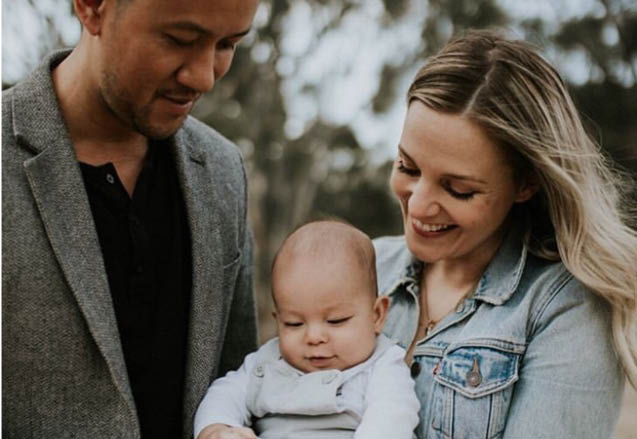
And because he was the most worth it, suddenly that elusive “mindfulness” became easier for me. I stopped worrying about being late, because there was always something I’d forget. I stopped experiencing anxiety over doing work I hated, because I didn’t say yes to that kind of work anymore.
I gave myself room to breathe, and to be OK with not doing so much. Or rather, recognising that I already was doing so much. I was raising a small human, and that in itself was enough. This was my new normal. And if, on some days all I “accomplished” was feeding him and myself that was enough. That was a day.
This new acceptance is by no means something I’ve mastered, but it is a work in progress. As Yuki neared his first birthday, I was challenged again. I found myself mourning the past baby phases while simultaneously loving the one I was in. I started yearning again to achieve more in a day, while looking at photos of him and crying because of how much he’d grown. Time passes faster than I can capture in words or in photos – and believe me, I have tried.
So I keep exhaling, and trying to go slow. I practice not having it all, and most importantly, being OK with that. There will always be another deadline, and another coffee with friends. But there will never be this time with Yuki. There will never be this moment again. So I let myself be here, knowing that here will also be gone too fast.”
‘I’ve learnt to plan ahead’
Jacinta Tynan is a journalist, broadcaster and author of Mother Zen
“I went skiing for a three day weekend in August with a bunch of friends, sans kids.
That might not sound revolutionary but to me it was a breakthrough of notable proportion.
When I look back on the year that was, pulling off that trip was one of my greatest achievements. Not so much for the complex orchestration required to get my two young boys looked after in my absence via a convoluted excel spreadsheet tag-team system of pick-ups and drop-offs interspersed with multiple sleepovers and playdates. Although I was pretty chuffed with that effort, too.
But more so because of what it taught me.
I learnt how to plan ahead.
To planner-types, this is nothing. But I grapple with a chronic daily aversion to looking ahead, and the reasons run deep. It’s less to do with logistics (these days it’s possible to facilitate almost any future arrangement with a click) and much more to do with self worth. To put a date in the calendar, to be the driver of good things happening, first requires the inherent belief that you are worthy of being the stake in the ground which others revolve around.
Like so many women, I have developed a lifelong propensity to put my needs last, dancing around other people’s agendas as if they know what’s best. Try making a call with that limiting perspective. Not that I could decide what to do anyway. For I am also burdened by chronic indecision, not trusting myself to make decisions in case I make the ‘wrong’ one then miss out on what I was ‘really’ meant to be doing. I fear that by locking in one thing I might be eliminating a more appealing option. No wonder I am stagnant.
The cost is huge.
Not planning ahead leaves you with only one course: to watch life pass you by.
Opportunities might come your way but, when you’re hovering in a state of vacillation, you’re likely to miss them or knock them back because to dive in doesn’t suit the limbo narrative you’ve become so accustomed to.
This year I leant to dive in. It took a life coach, kinesiology, and my daily meditation practice to get me there.
My Thredbo sojourn was like a practice run. The life coach, Alexandra Andrews, who happens to be a school friend, got me to pick a date. A date that suited me. Several months out. This was scary stuff. Then I had to book it in, put money on the table. And invite friends to join me. It triggered all manner of trepidation and if Alex hadn’t kept on my case I would have bailed. What if something ‘better’ comes up that weekend? What if I can’t find anyone to mind the kids? Or should I just take the kids? What if no one comes?
I stepped into the fear and I was duly rewarded.
It snowed like it hadn’t snowed in years. Record snowfalls. Awesome skiing, good friends, fun times. And the kids were alright.
Best of all, it changed my brain. When we shift an entrenched habit, however mildly, we rewire the neural pathways in our brain. That one weekend was proof that I too can become someone who plans ahead, honouring myself and my kids in the process. Not just for holidays but my life.
‘I learnt to really listen’
Amanda Niehaus is a scientist and editor whose first novel, The Breeding Season, was published this year
“A couple of weeks ago, I taught a three-hour class in storytelling to Masters students in a course called Communication and the Environment. I was terrified. Although I think about communication all the time, I’ve only recently transitioned from a career in science to one in writing—and I didn’t want to screw it up. I worried they would see me as an imposter, when what I wanted more than anything was to inspire them to go out into the world and use the important stories from their own lives to connect with people.
No pressure, right? Let’s just save the world, one story at a time!
I couldn’t eat properly that morning and wore a black top so you couldn’t see the sweat. I drank way too much coffee. But here’s how the class went – I talked a bit about how stories work, told one of my own important stories, and then mostly listened.
And I don’t know how the students felt, but I loved it. We talked about our dreams for the future and shared stories of our growing-up lives in the US, Australia or China. The details differed, of course, but these stories spun threads of connection between us. Stories say: although our experiences are different, we have things in common. My story is like your story; we can feel the same things. And through this kind of mutual understanding and empathy, we can face what scares us. We can make the changes the world needs today.
But stories don’t work if no one listens.
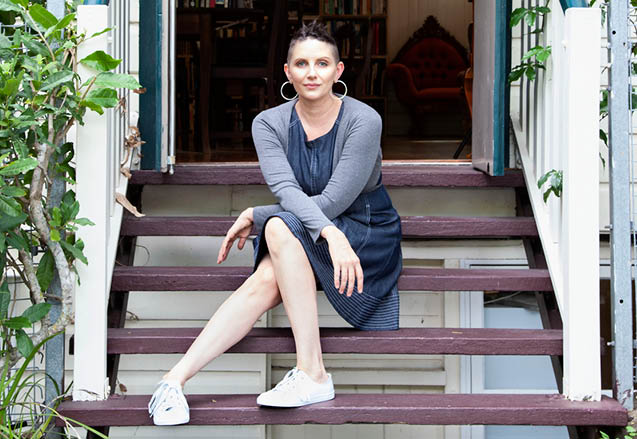
For me, 2019 has been a year of listening, and I certainly didn’t expect it to be this way. I published my first novel this year and was given—for the first time—a large, public platform on which to speak about science and fear and empathy and the environment. And I have spoken words and written them, but like in the class, the best parts of becoming an author have been the conversations, the moments that people came up and sat down and said—that happened to me. I felt that, too.
We all need to feel heard, to feel our stories matter. My 12-year-old daughter, my 71-year-old mother, the academics whose grants I edit and the writers whose pieces I edit, my tired friend, the artist and the breast cancer survivor and the philosopher from Hong Kong and the composer of songs about bees. Sometimes, I’m learning, the most important work I do is listen.




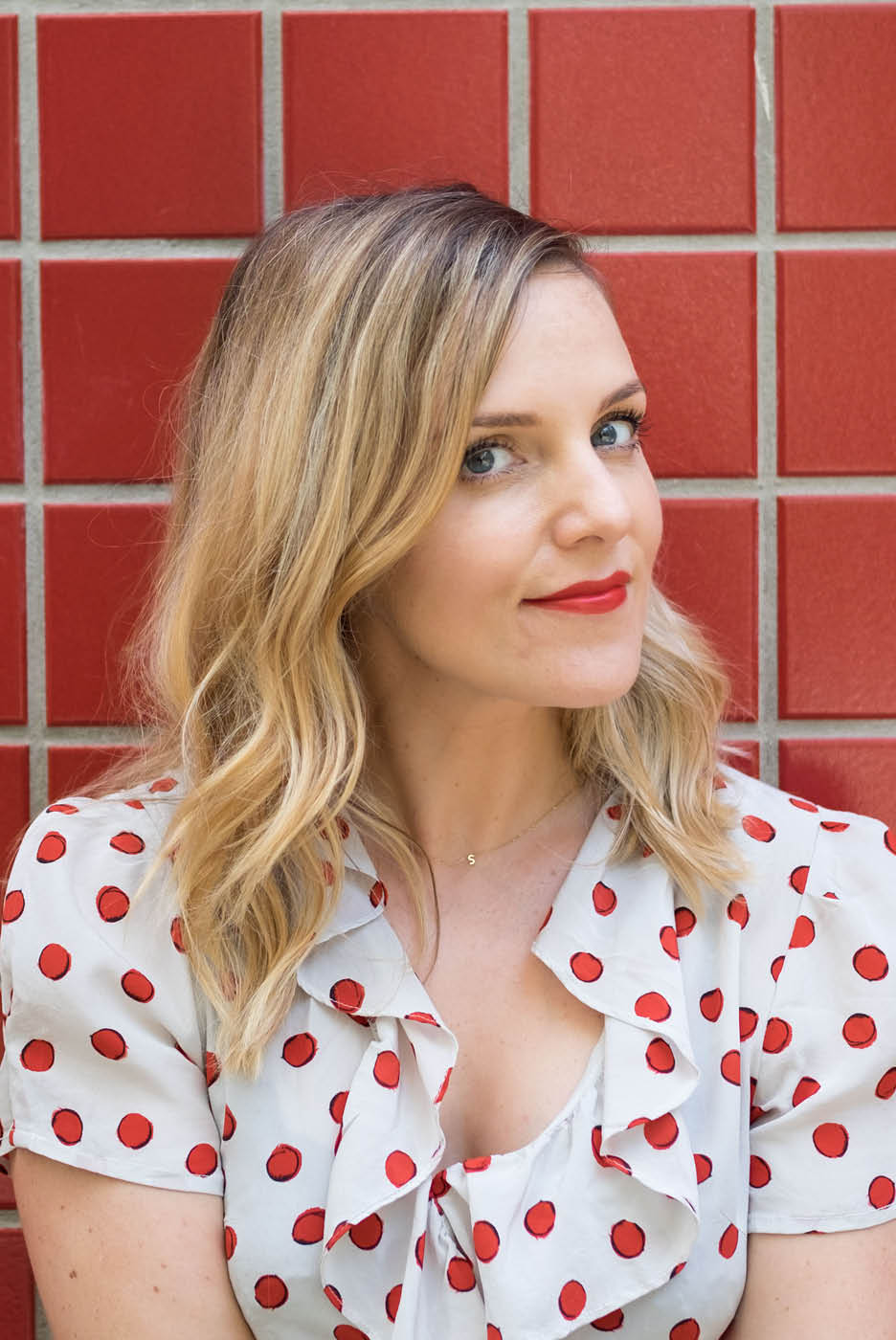
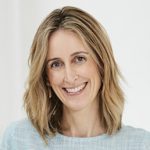

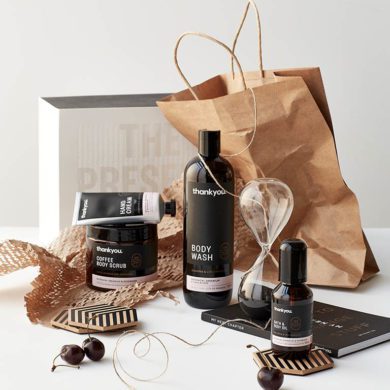
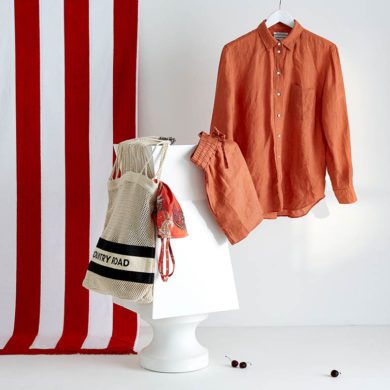
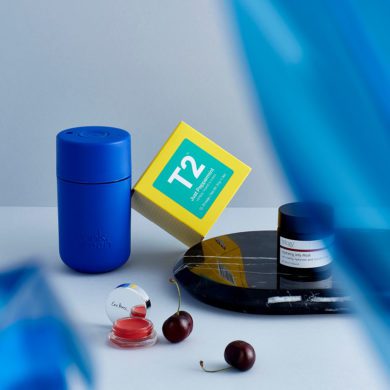
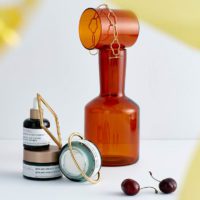
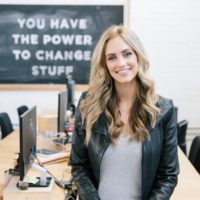
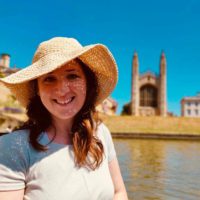
2 Comments